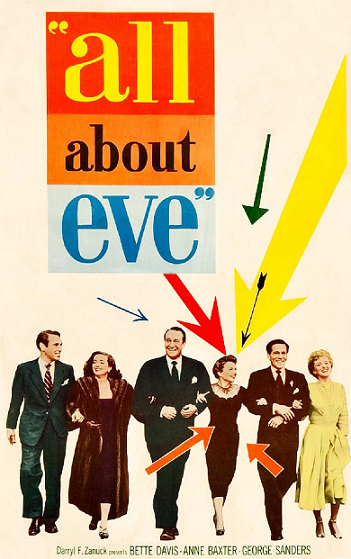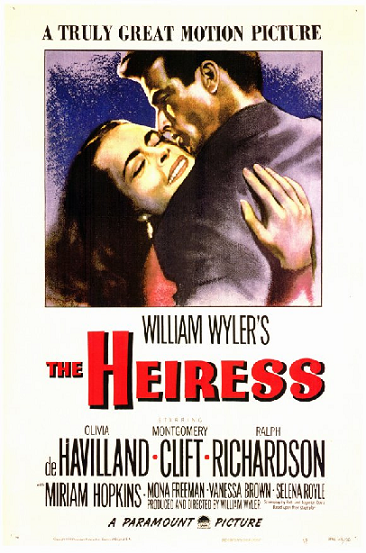
Starring: Bette Davis, Anne Baxter, George Sanders, Celeste Holm, Gary Merrill, Hugh Marlowe, Thelma Ritter, Marilyn Monroe
Director: Joseph L. Mankiewicz
Summary: An ingenue insinuates herself into the company of an established but aging stage actress and her circle of theater friends.
Other Nominations: Director*, Actress (Davis), Actress (Baxter), Supporting Actor (Sanders)*, Supporting Actress (Holm), Supporting Actress (Ritter), Adapted Screenplay*, Dramatic/Comedy Score, Sound Recording*, B&W Art Direction, B&W Cinematography, B&W Costume Design*, Film Editing
Positives
-Both of the female leads are fantastic playing two of the great female roles in cinema. Davis basically plays herself, a star on the downside of her career. She’s entertaining, bitchy with a little bit of camp, and this role would basically define the rest of her career where she played similar roles, although she hasn’t gone overboard to self-parody here like she eventually would. Baxter gets arguably the tougher role, considering she has to be convincing to the audience (at least initially) that she’s something other than what she is, while still giving us hints to her true nature. She hits it out of the park, especially towards the end when she gets to bare her fangs.
-George Sanders is also terrific playing…George Sanders as he is in most of his movies. I cannot imagine anyone else playing the part, as he is so naturally acerbic, cynical and detached from humanity.
-The script is excellent, especially the dialogue which has a lot of wit, fun, drama in addition to having a great arc for both of our main characters.
-Marilyn Monroe has a bit part in this movie, from before she became famous. Even here, she stands out and you can tell that something interesting is in store for her in the future (whether it be as a star or at the minimum, a Jayne Mansfield or Mamie Van Doren type career).
Negatives
-Gary Merrill is easily the weakest of the main characters, even if his mediocrity doesn’t have that huge of an overall impact because he’s the 5th most important character.
Other Stuff
-Originally Claudette Colbert was cast in the Bette Davis role until she injured her back filming another movie and then they ended up re-writing the part slightly. Seeing Colbert here would have been fascinating, as she is so totally different than Davis in her persona and I don’t know how the movie would have worked as well.
Overall
Classic story about the cutthroat entertainment business and the people who inhabit it, with some stellar performances and a great script backing it.
Rating: A-








